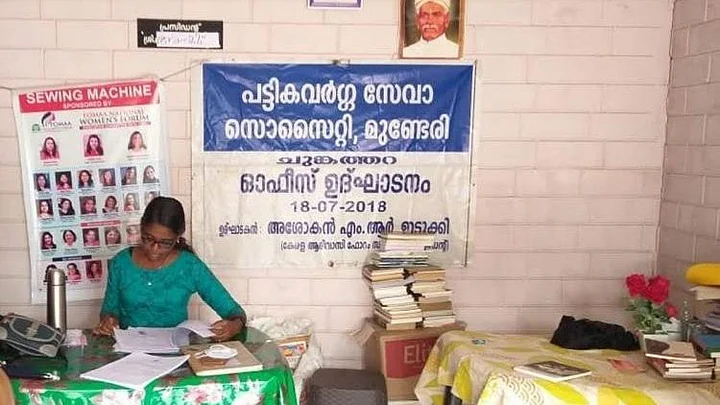In Kerala’s Malappuram district, tribal communities have a long tradition of collecting forest produce but many face repeated exploitation in having their wares sold at a rate much lower than the market value.
For the past three years, a society of tribal people have been working to end this practice by ensuring a fair price for raw, organic and authentic forest products.
From forest honey (cherru then) to wild turmeric (kasthuri manjal) and frankincense, the Pattika Vargha Seva Society ships products across Kerala, aiding hundreds of tribal families.
The Society Helps Hundreds of Tribal Families Without Any Govt Assistance
Formed in 2017 by a group of tribal activists, over 200 tribal families from groups such as Kattunaikans and Paniya are part of the society, which functions from Munderi in Nilambur.
While the group has not yet received any government assistance for its development, the society has been able to lend a helping hand to many tribal families in the region, through hard work and the aid of well-wishers.
Speaking to TNM, tribal activist and secretary of the Pattika Vargha Seva Society, Chithra MR, explains the need for this society.
What has been happening is that tribal people get cheated while they sell their products to other dealers. If a kilogram of honey (vannthen) costs about Rs 650-800, the other dealers just give them Rs 250-300. They woo the tribal people by giving them liquor. But we are collecting at a fair price, making sure they do not get cheated.Says Chithra MR, Tribal Activist and Secretary of the Pattika Vargha Seva Society
She also noted that all the products are directly collected by the tribal people in a pure form, without any adulteration.
"The key product that the society sells is forest honey. Popular for its medicinal properties, forest honey is also expensive due to its rarity," Chithra said.
"It is harvested with so much effort as the beehive is found inside cavities of trees, between folds of rocks etc. Forest honey is collected by the people from the Kattunaikans community."Chithra MR | Secretary, Pattika Vargha Seva Society
One kilogram of forest honey is sold for Rs 2,500.
Empowering Tribal Women
The society has also been instrumental in providing employment to a handful of tribal women.
A single mother of four daughters in a Paniya tribal colony in Nilambur, 34-year-old Suma has been making a living with help from the society.
"If not for the work in the society, there is absolutely no way to make ends meet."Says Suma | Beneficiary of the society's initiative
While many women, like Suma, are provided employment in packing the products, others make and sell indigenous products through the society. One such product is ‘Panchami Hair Oil’, which a group of women in Kattunaikan community make using ingredients in the forest. “This is the hair oil that the women in the tribe use. It is really effective for hair growth and for greying of hair,” Chithra said.
The Pattika Vargha Seva Society is also teaching their employees how to save small amounts of money for future use. “Though it is a small amount, it will come handy for the families to meet their requirements such as purchasing supplies for a school reopening,” she added.
In Need of Assistance
Despite the demand for the products marketed by the society from across the state, the group lacks adequate financial support.
It is often by mortgaging gold or getting money from well-wishers that we sustain the society's work. If we get enough financial support, we could aid more people. Though we have submitted a project proposal to the government, they say societies should be at least three years old to get government aidChithra MR
Due to the COVID-19 pandemic, orders have dropped.
“If the society does well, scores of tribal women will receive help to manage our families. In my colony itself, most of the women are single mothers. Groups like this help sustain our families,” added Suma.
Contact 9497345053 , 9400824190 to order products.
(Published in arrangement with The News Minute)
(At The Quint, we question everything. Play an active role in shaping our journalism by becoming a member today.)
